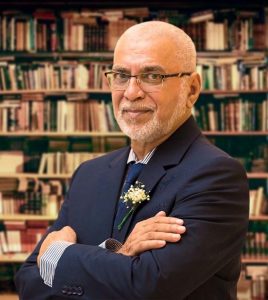The 20th June marks the World Refugee Day. This day prompts us that everyone has the right to seek safety – whoever they are, from any faith belief they are, wherever they come from, and whenever they are forced to flee, because the right to seek safety is universal.
Most unfortunately, recently, the world had witnessed the refugee hypocrisy during the Russian invasion of Ukraine and the shocking contrast between the brutality meted out to Syrian refuges who tried to enter Eastern Europe in 2015 and the acts of self-sacrifice toward the three million and counting Ukrainians who have poured into Poland and neighboring countries.
However, the history of Islam, even before the Prophet Muhammad’s (saw)time is replete with examples of mass migration, requests for protection and the granting of refugee status. Indeed, many of the messengers and prophets were compelled to leave their homes and lands as a result of persecution. The Prophet Ibrahim (AS) was forced out of Mesopotamia and migrated to Palestine. The Prophet Yusuf (AS) was a victim of human trafficking when he was enslaved and taken from Palestine to Egypt. The Prophet Musa (AS) fled from Pharaoh’s tyrannical rule in Egypt twice, firstly on his own to Midian and thereafter with his people when they miraculously crossed the Red Sea to escape that apartheid state. Later, the Prophet Jesus (AS) became a refugee as a baby when his mother Maryam (AS) attempted to protect him from Herod’s infanticide by leaving Bethlehem for Egypt and thereafter to Nazareth as an internally displaced person.
After the intensification of the persecution of the early Muslims in Makkah, the companions of the Prophet Muhammed travelled to Abyssinia and sought asylum in the Christian kingdom of the Najashi (Ethopia). Even after the Quraysh, with whom the Najashi enjoyed excellent political and trade relations, sought their extradition to Makkah on fabricated charges of creating social disharmony, the Najashi refused to surrender them to a people who would persecute them. The Prophet Muhammed himself fled an attempt on his life escaping to Madinah with his companions after the ruling tribes of that city agreed to grant them asylum.
The Islamic approach to migration and refugees entails varying responsibilities and duties on the asylum seeker, the protecting state and members of the general public. Islamic theology views the asylum process differently from the current practice which involves individuals having a right to claim asylum with no corresponding duty on state authorities to grant protection, albeit the latter are prohibited from expelling them or returning them to a place where they are at risk of being persecuted.
Islam seeks to empower asylum seekers and refugees by giving them moral agency in choosing to flee in order to protect their human dignity, their religious practices and future generations rather than remaining oppressed in their homes. Migrating (hijra) is perceived as an honourable deed in obedience to Allah’s commandments to free oneself from oppression.
And there’s the displeasure of Allah for those who chose to remain living under oppression, describing it as a sin against their souls. In essence, Allah is imposing a duty on the oppressed to be free from persecution, travelling to seek protection where resistance to tyranny has become futile.
In doing so, the framework within which we view the arrival of refugees on our borders, switches from one of charitable sympathy for a persecuted people to respectful admiration for those who have sacrificed their homes and belongings to obey the divine commandment to emigrate in order to protect their dignity and their faith. This completely alters the dynamics of our relationship with refugees whereby they are now defined not by their persecution but by their liberation and the role they played in that.
The moral action of fleeing persecution however remains incomplete without the interlinked moral action of the receiving state granting protection. Viewed as such, the relationship gains a level of parity rather than one of charity. The general rule is that Islam encourages the granting of asylum or protection to the extent that it can be seen as a corresponding duty to the one who has fulfilled his duty of seeking protection. In Islamic law, granting sanctuary to refugees is grounded in the notion of ‘protection’ or ‘safety’(aman).
Since the very essence of safety entails the sanctity and protection of the life and property of the refugee, it is prohibited to expel or return an asylum seeker to a land where there is a risk of their lives and freedom being threatened. This is similar to the modern-day principle of non-refoulement, which is widely understood to be the cornerstone of international refugee law.
Indeed, when dispatching his companions, including his daughter, to Abyssinia, the Prophet Muhammad praised the Najashi, a man who he had never met or spoken to, as a just ruler under whose rule they would be safe and able to practice their faith. We can take from this that providing a haven to those in need is linked to justice and something considered praiseworthy by Allah.
Indeed, this principle is so beloved to Allah that it even applies to disbelievers who are at war with the Muslims.
Even if an enemy of the state were to seek protection, he should be granted it temporarily and then transferred to a place where he feels safe; he cannot be refouled to where he feels at risk of harm, even if there is no actual risk of harm to him there.
In the Quran, Allah praises the ‘asylum givers’ (Ansar) in Madinah for their attitude towards the ‘asylum seekers’ (Muhajirun) who arrived in their city seeking to rebuild their broken lives. Specifically, Allah mentions three qualities which we should all strive to implement in our relationship with asylum seekers and refugees.
We should first (i) love those who migrate to our lands, (ii) respect, honour and dignity and (iii) wanting the best for them. Furthermore, we should not desire or feel envious of what migrants are given by the state or by members of the public, whether it be in the form of accommodation, jobs or other financial benefits.
World Refugee Day is a stark reminder that around the world, millions of refugees have no access to essentials such as housing, healthcare, education and livelihoods.
Bashir Nuckchady



![[Khutbah – La réflexion du Vendredi] Gaza : Le piège de l’oubli ou la stratégie de la diversion](https://sundaytimesmauritius.com/wp-content/uploads/2025/06/gaza-netzarim-corridor-humanitaire-218x150.jpg)



![[Yoga] A shared legacy, a shared future](https://sundaytimesmauritius.com/wp-content/uploads/2025/06/Yoga-Article-HC-218x150.jpg)
![[Khutbah – La Réflexion du Vendredi] Tawakkul, la confiance absolue en Allah (swt)](https://sundaytimesmauritius.com/wp-content/uploads/2025/06/Tawakkul-218x150.jpg)
![[Conseillers du MSM] Cumul de postes sur les boards : Un système lucratif d’enrichissement personnel](https://sundaytimesmauritius.com/wp-content/uploads/2025/06/pic-2-150x150.jpg)
![[National Agency for Drug Control] Sam Lauthan : « C’est tous ensemble qu’on vaincra la mafia »](https://sundaytimesmauritius.com/wp-content/uploads/2025/06/WhatsApp-Image-2023-02-16-at-4.22.48-PM-e1738665704593-150x150.jpeg)
![[OMCA Foundation] Un dîner de gala pour soutenir l’accès aux soins des plus démunis](https://sundaytimesmauritius.com/wp-content/uploads/2025/06/f960dc68-ed3e-4619-ae8e-dd8f374d07c4-150x150.jpg)

![[Conseillers du MSM] Cumul de postes sur les boards : Un système lucratif d’enrichissement personnel](https://sundaytimesmauritius.com/wp-content/uploads/2025/06/pic-2-100x70.jpg)
![[National Agency for Drug Control] Sam Lauthan : « C’est tous ensemble qu’on vaincra la mafia »](https://sundaytimesmauritius.com/wp-content/uploads/2025/06/WhatsApp-Image-2023-02-16-at-4.22.48-PM-e1738665704593-100x70.jpeg)
![[OMCA Foundation] Un dîner de gala pour soutenir l’accès aux soins des plus démunis](https://sundaytimesmauritius.com/wp-content/uploads/2025/06/f960dc68-ed3e-4619-ae8e-dd8f374d07c4-100x70.jpg)